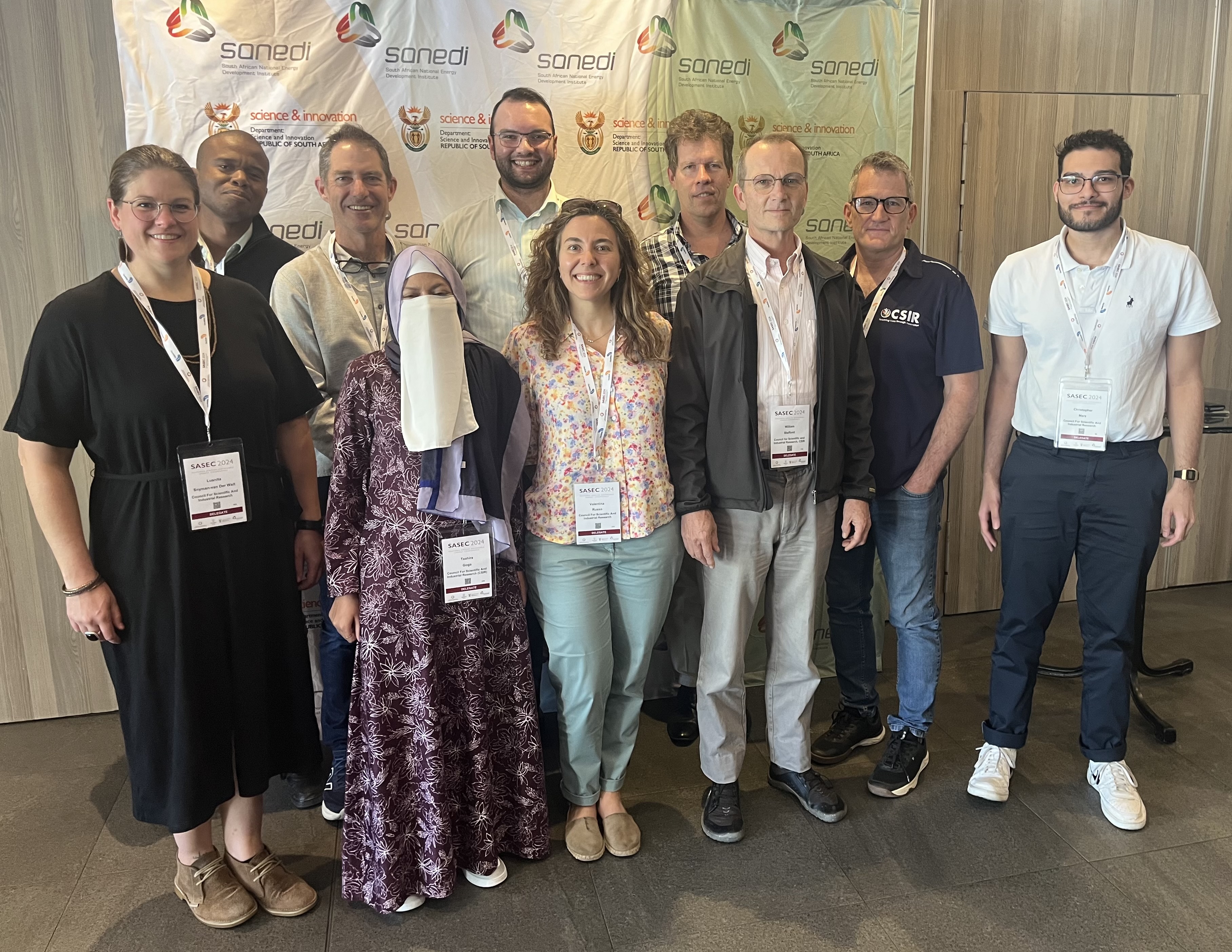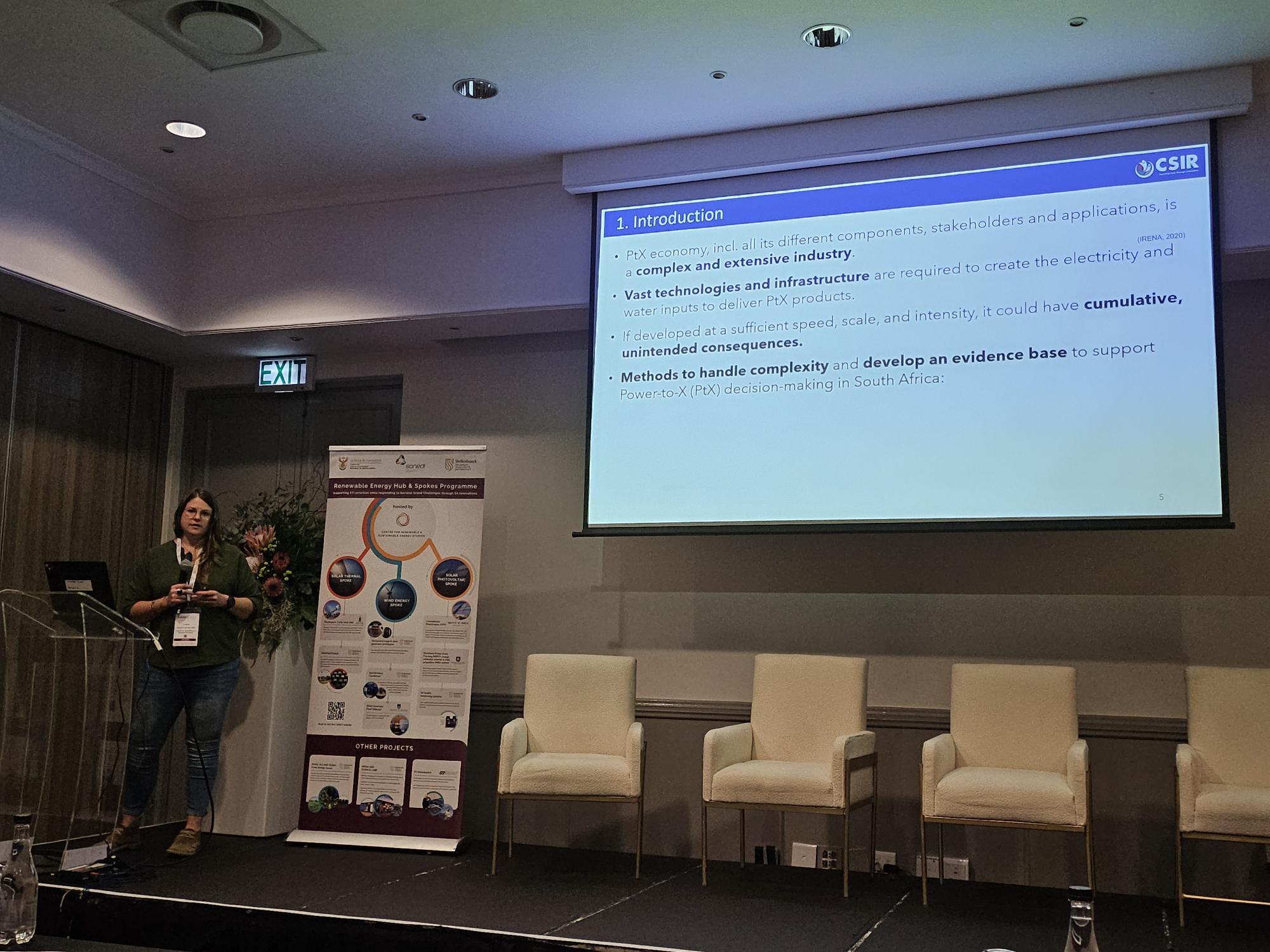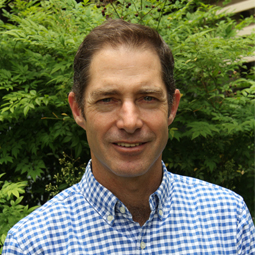All systems to be in place for sustainable energies for a greener economy
Energy demand is expected to rise steadily in South Africa, and alternative renewable energy sources are earmarked as an alternative. In addressing delegates at this year’s Southern African Sustainable Energy Conference 2024, Council for Scientific and Industrial Research (CSIR) senior researcher Luanita Snyman-van der Walt presented an initial evidence base to support Power-to-X (PtX) decision-making in South Africa.
Energy demand is expected to rise steadily in South Africa, and alternative renewable energy sources are earmarked as an alternative. In addressing delegates at this year’s Southern African Sustainable Energy Conference 2024, Council for Scientific and Industrial Research (CSIR) senior researcher Luanita Snyman-van der Walt presented an initial evidence base to support Power-to-X (PtX) decision-making in South Africa.

Sustainable Energy Conference 2024, held from
13 to 15 November 2024 in Somerset West, Cape Town.
A team of CSIR experts participated and engaged with delegates
around topical findings on renewable energy sources and technologies.
The presented outcomes, based on a recent research study conducted by the CSIR for the German and South African governments, made apparent that large-scale development of green hydrogen and its PtX derivatives in South Africa present a mixture of aspirations and limitations. Although South Africa has several competitive advantages, such as its primary renewable energy resources, extensive coastline, port infrastructure and metal reserves to potentially produce cost-effective PtX products, substantial infrastructure, especially renewable energy, is required to enable a complete PtX technology value chain.
In her talk, van der Walt also highlighted a series of recommendations for PtX planning and decision-making, emphasising the need to understand the complexity of developing comprehensive PtX projects with the use of systems thinking approaches, geographic information systems, and mixed-method research approaches.
“It is important that South Africa is on board with the global shift of transitioning from fossil fuel towards renewable energy sources,” says van der Walt. PtX development has a contribution to make in replacing the use of fossil fuel as the country works towards implementing the greenhouse gas reduction targets, the Sustainable Development Goals and forging sound geopolitical partnerships. This must, however, be done in a manner that maximises positive and minimises negative outcomes for South Africa’s people and environment.”

was well received at the Southern African Sustainable Energy
Conference 2024.
Several other CSIR researchers were actively involved. Stefan Karamanski presented a paper on using battery energy storage systems and renewable energy to reduce municipal energy costs; Jan-Hendrik Grobler delivered a talk on optimizing the energy mix for eco-industrial parks using the open source Python for Power System Analysis (PyPSA) software; and Dr Lawrence Pratt spoke about research on forecast accuracy for solar resource in the City of Tshwane using SolCast data services.
This year’s event can best be described as an international conference with a South African flavour. It was hosted by Stellenbosch University and held from 13 to 15 November 2024. Also in attendance were CSIR energy storage testbed supervisor Renesh Thakoordeen and senior researcher Dr Valentina Russo. Russo chaired an engaging session on critical materials, end-of-life options and circularity of renewable energy technologies, while Thakoordeen served on the conference’s review committee.
The scientific programme proved to be highly engaging, with a series of structured panel sessions, a policy roundtable, and parallel sessions that discussed a variety of thematic areas such as solar thermal and photovoltaic energy systems; wind energy systems; green hydrogen and PtX; critical materials, end-of-life options and circularity of renewable energy technology; bioenergy and waste energy; just energy and decarbonisation transition and power systems planning; operations and demand side to name a few.
This conference augurs well for postgraduate students, as it provides them with the opportunity to showcase their research progress and to develop knowledge and networks in the field related to just energy transition matters.


